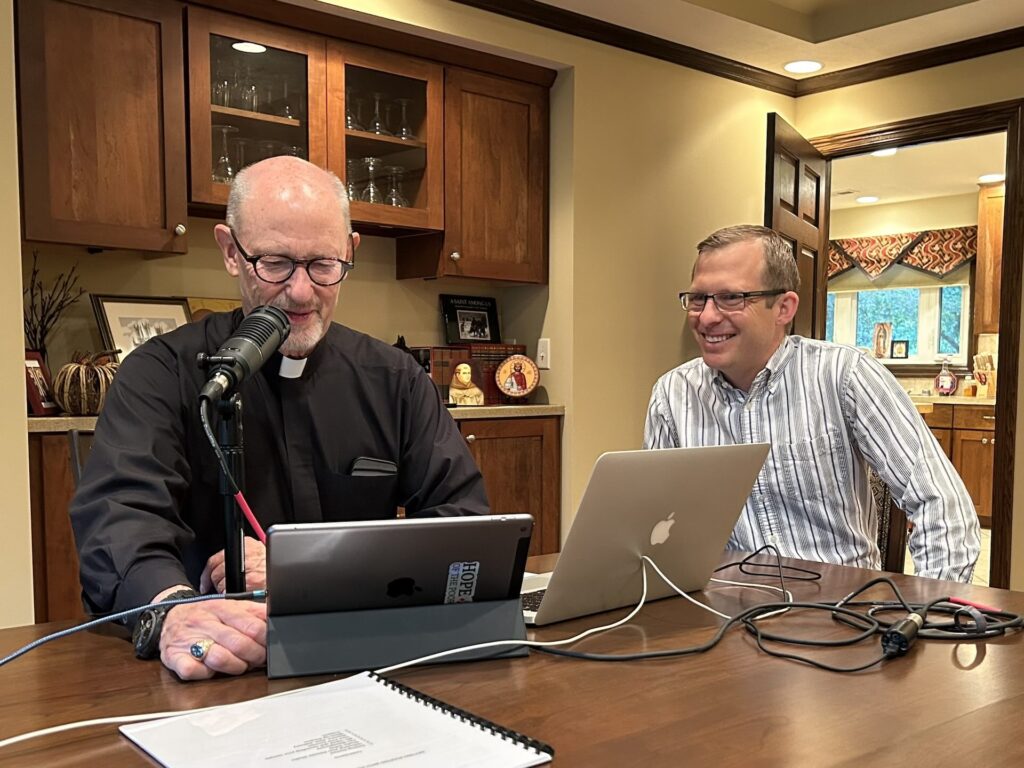Prologue
During this eleven-day exercise, we will look at what it means to live by the Holy Spirit.
Our guide will be St. Paul and his letter to the Galatians.
As you get started on this formation pack, it would be good to read through the entire passage that we will be using during our time of prayer over the next 11 days– Galatians 5:16-25.
Here it is:
But I say, walk by the Spirit, and do not gratify the desires of the flesh.
For the desires of the flesh are against the Spirit, and the desires of the Spirit are against the flesh; for these are opposed to each other, to prevent you from doing what you would.
But if you are led by the Spirit you are not under the law. Now the works of the flesh are plain: fornication, impurity, licentiousness, idolatry, sorcery, enmity, strife, jealousy, anger, selfishness, dissension, party spirit, envy, drunkenness, carousing, and the like.
I warn you, as I warned you before, that those who do such things shall not inherit the kingdom of God.
But the fruit of the Spirit is love, joy, peace, patience, kindness, goodness, faithfulness, gentleness, self-control; against such there is no law.
And those who belong to Christ Jesus have crucified the flesh with its passions and desires.
If we live by the Spirit, let us also walk by the Spirit.
(Galatians 5:16-25)But I say, walk by the Spirit, and do not gratify the desires of the flesh.
(Galatians 5:16)
In this passage, Paul gives us a brief overview of the terrain.
He makes a basic distinction that is crucial for understanding the dynamics of spiritual life and of spiritual warfare.
He writes: “The desires of the flesh are against the Spirit, and the desires of the Spirit are against the flesh; for these are opposed to each other, to prevent you from doing what you would” (v. 17).
Paul contrasts the works of the flesh— a life apart from God— with what he calls walking by the Spirit— a life under God’s influence.
Paul’s use of these terms is important.
It is worth taking a moment to get clear about them, because they are so often misunderstood.
We might think that “the flesh” refers simply to our physicality, our bodies as opposed to our souls.
We might go further and confine the notion to sexual desire and sexual sin.
The phrase “sins of the flesh” is often used as a way to describe sexual transgressions.
But Paul’s meaning is much broader, which becomes clear when he lists the works of the flesh.
He does include sexual sins in that list: immorality, impurity, and licentiousness.
But he goes much further.
He adds drunkenness, anger, and strife, along with selfishness and conceitedness.
Surprisingly, he even calls idolatry and sorcery works of the flesh.
Many of these sins have little to do with our physical being.
What unites them is that each is a fruit of the primal wound of our nature that we received after Adam’s fall.
In fact, while we can certainly be fleshly in our bodily desires, the primary place “the flesh” works within us is in our minds.
Paul specifically speaks elsewhere of the problem of a “fleshly mind” (Colossians 2:18).
So, Paul uses “the flesh” to mean anything within us that is under the influence of the devil and his falsehoods.
By “spirit,” Paul does not mean simply what is non-material.
The spirit here refers to the Holy Spirit and all that is ruled by and imbued with Him, whether material or non-material.
We can sometimes make the mistake (an old mistake that goes back to the ancient Gnostics) of thinking that “spirituality” is only a good thing.
But some of the worst things in the world are spiritual, like demons.
Our goal as Christians is not to become “spiritual” in a vague and misty sense.
It is to allow ourselves to be led by the Holy Spirit in everything, whether material or non-material: in the use of our bodies and in the flow of our thoughts; in the way we spend our money and in the way we pray; in our sexual relationship and in our relationship with God.
All these can be fleshly; all are called to be spiritual.
During the coming days, we will examine what St. Paul says about living by the Holy Spirit, with the goal of becoming ever freer in Christ: free from the flesh and its desires and works, and free to love God and others as Christ has called us.
In prayer today, let’s ask for the grace to be open to growing in the fruits of the Holy Spirit.




